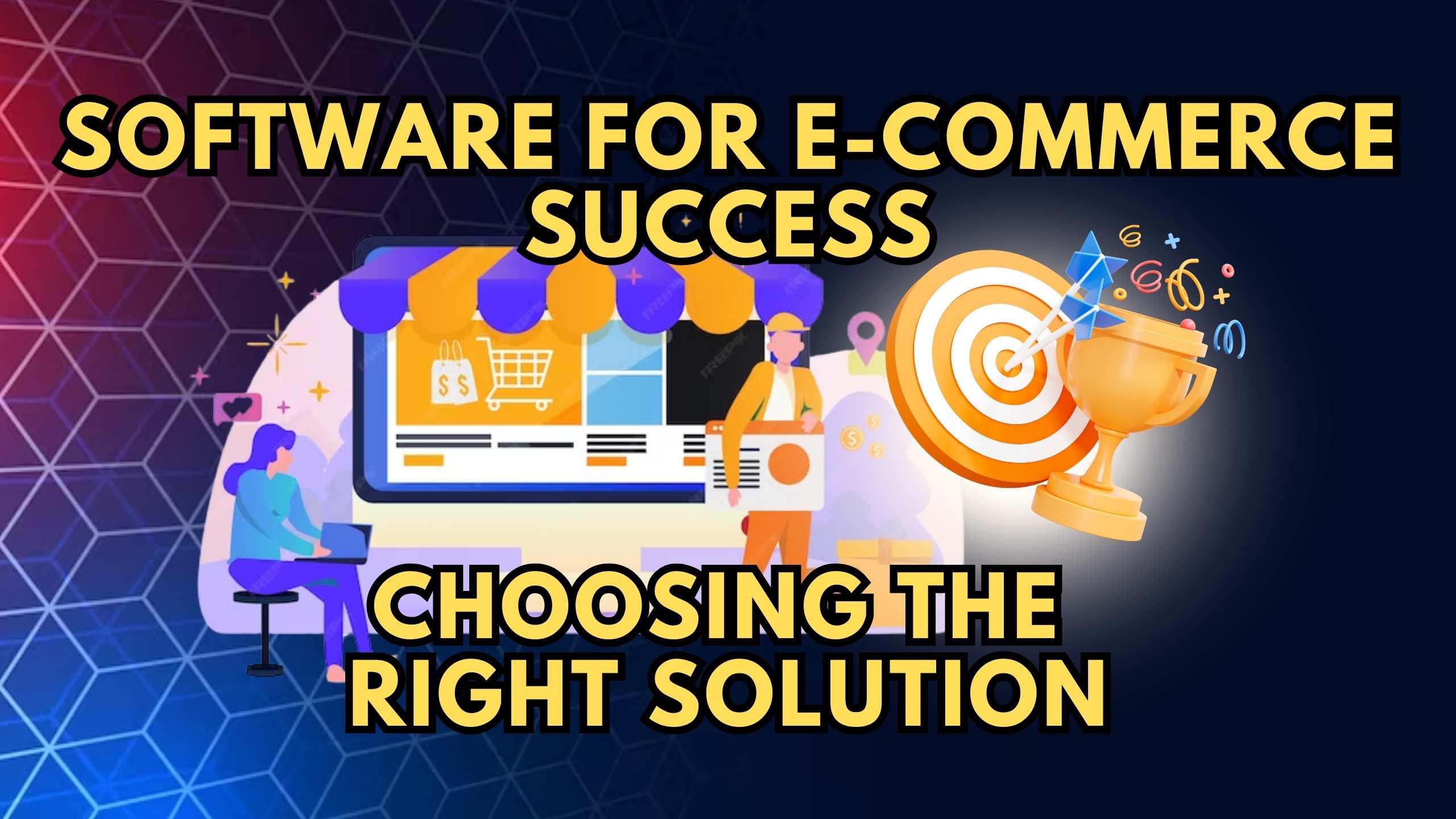Software for E-Commerce Success: Choosing the Right Solution


Software for E-Commerce Success: Choosing the Right Solution
In the ever-evolving world of e-commerce, selecting the ideal software is a pivotal decision that can significantly influence the trajectory of your online business. This comprehensive blog takes a deep dive into various Software as a Service (SaaS) options, ensuring you make an informed choice tailored to your e-commerce requirements.
Understanding E-Commerce Software
Understanding the intricacies of e-commerce software is fundamental for businesses seeking to establish or elevate their online presence. Whether you operate a small business or manage a large enterprise, the right software can not only streamline operations and enhance user experience but also serve as a catalyst for overall success.
1. Shopify: Streamlined E-Commerce Experience
When it comes to creating a seamless online store, Shopify stands out as a robust e-commerce platform. Its user-friendly features, customizable templates, and integrated payment options not only simplify the online selling process but also contribute to a visually appealing and efficient online store. Shopify’s scalability makes it an ideal choice for businesses of all sizes looking to grow in the digital marketplace.
2. BigCommerce: Robust and Scalable Solution
BigCommerce emerges as a robust and scalable e-commerce solution, renowned for its flexibility and advanced features. With built-in SEO tools, responsive templates, and a secure checkout process, BigCommerce caters to businesses aspiring to expand their online presence. It’s particularly relevant for those requiring a comprehensive and adaptable e-commerce platform capable of meeting evolving business needs.
3. WooCommerce: WordPress Integration for Customization
WooCommerce, a WordPress plugin, offers a versatile and customizable e-commerce solution. Its seamless integration with WordPress allows for extensive customization and flexibility, making it an excellent choice for businesses seeking a tailored online store. WooCommerce is particularly beneficial for those who already leverage WordPress as their content management system, providing a unified solution for content and commerce.
4. Magento: Enterprise-Grade E-Commerce Capabilities
For businesses operating at an enterprise level, Magento stands out as an open-source e-commerce platform with powerful features. Recognized for its scalability and flexibility, Magento provides a comprehensive suite of tools for managing large product catalogs, handling multiple storefronts, and delivering a personalized shopping experience that meets the unique needs of high-volume businesses.
5. Squarespace: All-in-One Website Builder
Squarespace emerges as an all-in-one website builder that seamlessly incorporates e-commerce functionality. With its intuitive drag-and-drop interface, Squarespace allows businesses to create visually stunning online stores. This platform is an ideal choice for those looking to effortlessly integrate e-commerce capabilities into their existing Squarespace websites while maintaining a cohesive and aesthetically pleasing online presence.
Conclusion
In conclusion, the selection of e-commerce software is a pivotal decision that can significantly impact the success of businesses in the digital marketplace. Each platform—Shopify, BigCommerce, WooCommerce, Magento, and Squarespace—brings unique features to the table, catering to diverse business needs and sizes.
Revolutionize Your E-Commerce Journey with Subscribed.fyi!
Are you ready to revolutionize your e-commerce journey? Subscribed.fyi offers an all-in-one solution for managing your SaaS stack, providing exclusive deals, and streamlining your subscription management. Sign up for free today, and discover the secret to choosing the right software for e-commerce success while enjoying substantial savings on essential tools!
Relevant Links:








